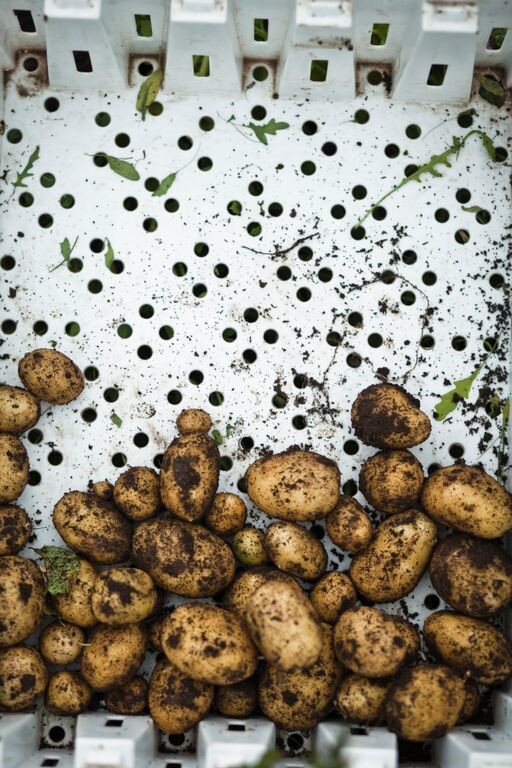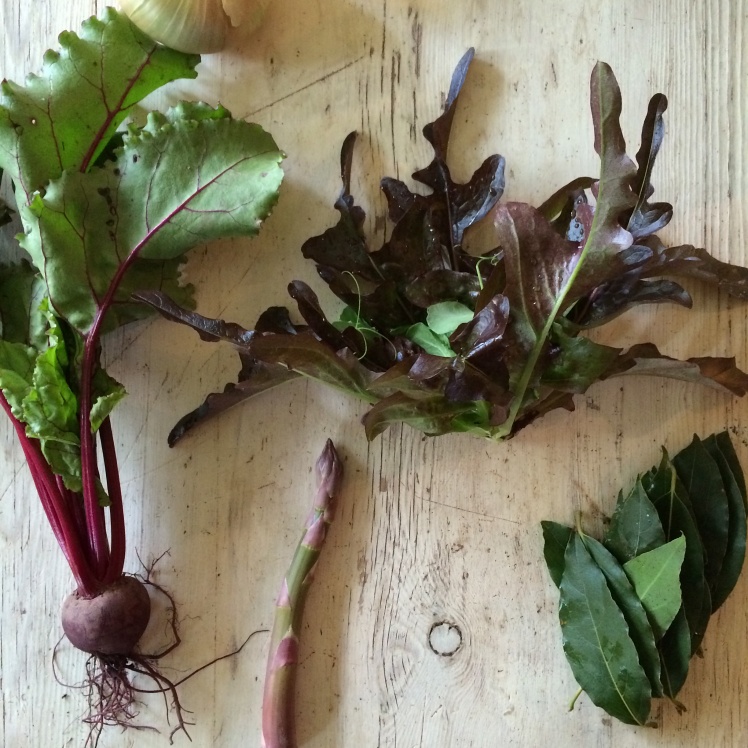
June 2015 Issue number three/ A Farm of their Own by David Prior
‘We’re getting married,’ begins Jane Scotter, as she explains the new partnership between her farm, Fern Verrow, and Spring. She doesn’t say it flippantly; instead, almost solemnly with a hint of nerves yet excitement in her voice. Scotter has real reason for mixed feelings and heightened emotions. For almost 20 years at Fern Verrow, she and her partner, Harry Astley, have had fidelity, only to growing superlative fruits and vegetables. And it is that uncompromising dedication to the quality of their produce that has continued to build their singular reputation with the passage of each season.
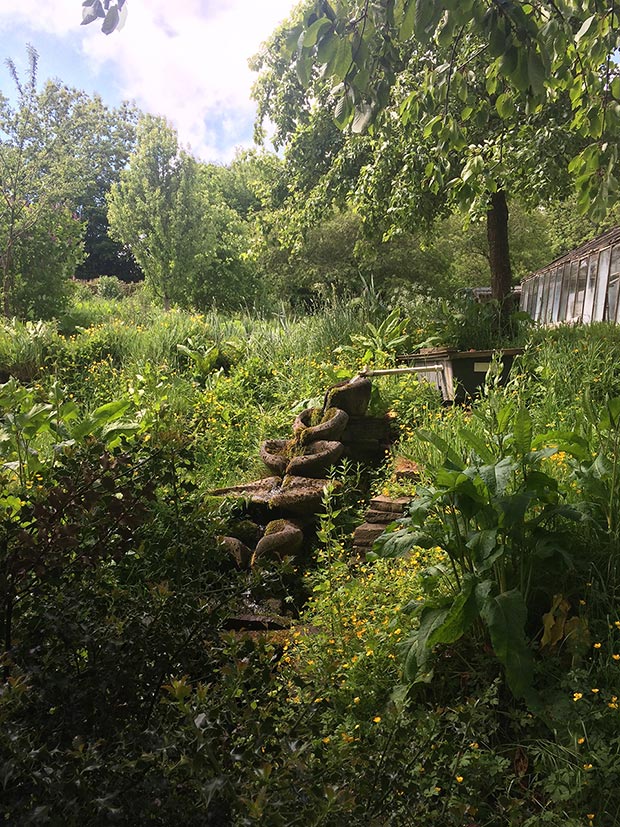
Many Londoners know the duo from their stall at Spa Terminus, where each week, until recently, they displayed the best of their harvest from the 300 varieties grown on the 16-acre farm in Herefordshire. It is a farm stall that stood out in the city. Produce with roots bared and stalks in tact, sometimes with blemishes and often irregularities. Picked in exactly the right moment, at Fern Verrow something might appear one week then disappear next, perhaps to reemerge the following year but perhaps not. Dictated not by demand but the seasons, taste and Mother Nature, it was a challenging but beguiling destination for chefs and cooks alike. It was this approach that first attracted Skye and the Spring team to the farmers.
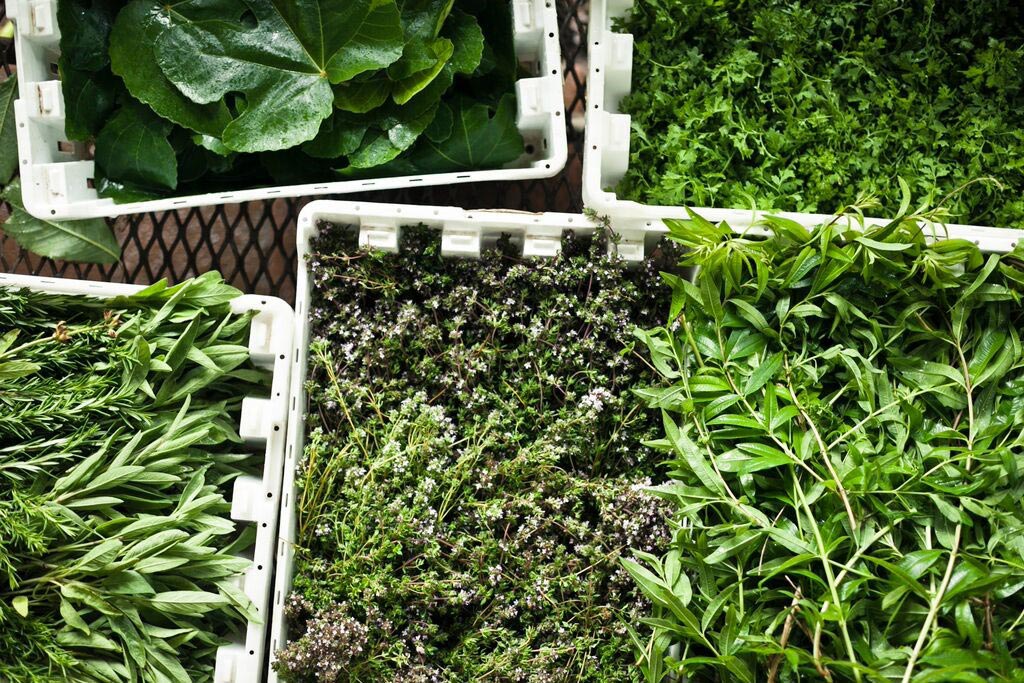
‘In the summer of 2014, just prior to the restaurant I went to work at Chez Panisse,’ says Skye. ‘I was always curious about their exclusive relationship with Cannard Farm and I wanted to know how it really worked.’ In a time when California was not the idyll of organic and local agriculture that it has become, Chez Panisse chef/owner Alice Waters struggled to find truly seasonal fruits and vegetables that were full of flavour to serve at her fledgling restaurant. The struggle in the early days to grow the kind of ingredients she had fallen in love with in France was genuine, even leading to a period of time where Waters dug up her own backyard to plant lettuces to serve in what would become the restaurant’s hallmark salads. That naive approach was never going to be sustainable beyond a few years. It was her businessman father, concerned more with financial security and a supply chain than taste, who first suggested that the restaurant find one farm that could grow the bulk of what they needed. ‘He was insistent that we find a farm that we could grow together with, one that would be reliable in supplying us,’ says Waters. ‘And of course, I was more taken with the romance of Chez Panisse having its own farm than the realities of what that would mean.’
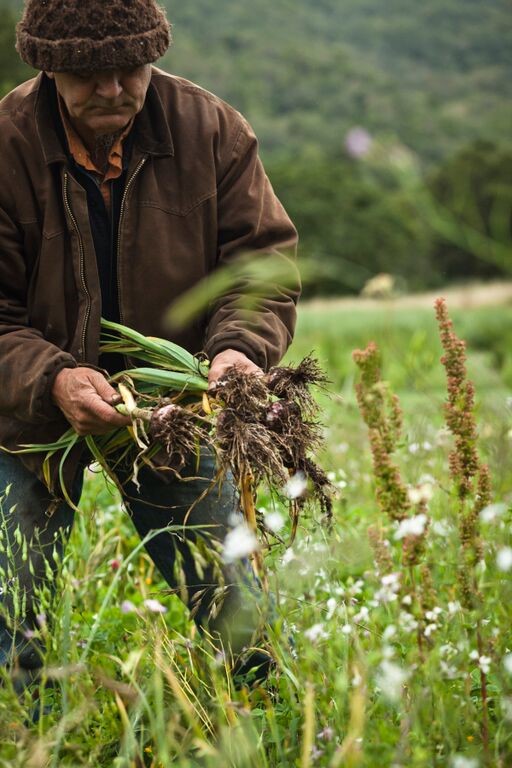
There were reasons that restaurants had either abandoned exclusive connections with particular farms or had placed it in the too-hard basket. Beyond disease, drought, blight, floods and other natural phenomena, there was also the cost. ‘The first thing that people say to me when they hear that we have our own farm is, “You must save so much money,”’ David Kinch says mockingly in reference to his restaurant Manresa’s famously symbiotic relationship with Love Apple Farms in Santa Cruz. ‘If only! Truly, I think it costs us three times as much,’ he adds. ‘When you come into this type of arrangement, you aren’t just buying the best of the harvest, you are taking it all, and I mean everything and everyone associated with the entire operation.’ However, Kinch isn’t griping – he wouldn’t have it any other way. ‘We aren’t making a statement about local, it is about taste and creating food that tastes of where we are in the world, something that we hope is truly special,’ he says pointedly. Over time, he and farmer Cynthia Sandberg have forged a working relationship that is at times fraught and yet has become tremendously fruitful. Manresa has become famous, arguably because of its relationship with the farm – a creative gauntlet run that has seen them come out the other side together and praised as helping to redefine California cuisine. Speaking at the international food symposium MAD 2013, Sandberg and Kinch talked openly about the ups and downs of the partnership, its very real financial implications and often intractable obstacles, and even of divorce. ‘We were having a tomato dinner in a few days and then the crop gets wiped out. At that point I was nearly done,’ says Kinch. However they continued to work through the challenges and ups and downs even through the fire that closed the restaurant for a length of time.
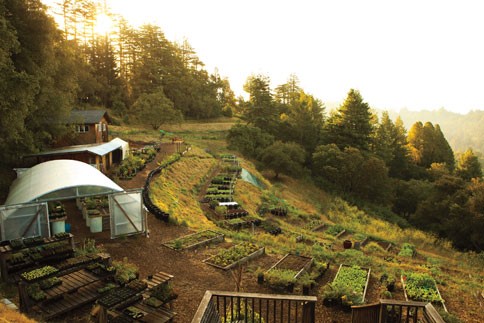
‘Coming into this agreement with Skye and Spring requires a great deal of trust on both sides,’ says Harry Astley of Fern Verrow. ‘We could only work with someone who really appreciated and respected what we help to coax out of the ground. Skye has that.’
From this month, after a year of flirtation and courtship, Fern Verrow will grow for Spring exclusively. ‘It is a dream for farmers to know what we grow will be bought and transformed in a beautiful way,’ says Scotter. Spring will come to rely nearly entirely on the work of Jane, Harry and Mother Nature. But still the question remains: why jump in feet-first and take what seems like a giant risk with so many uncontrollable and challenging variables? ‘It is a leap of faith, that’s true,’ says Skye, ‘but for the kitchen to have the ability to collaborate on what is grown on the farm and to really play a part in the provenance of the food, that is actually more control and a beautiful opportunity.’
There is no textbook or manual on how to negotiate how a farm and restaurant enter into this kind of relationship. Like a marriage, it is about the two coming together around a mutual goal. It is certain, however, that there would be no Chez Panisse without the marriage of Alice Waters and Bob Cannard, nor a Manresa without Love Apple. While a farm and restaurant exclusive relationship has yet to be achieved in the UK, the hope is that Fern Verrow and Spring become a true partnership, bringing to life the subtle nuances of growing potential and giving one another security and inspiration. As they say: for richer or poorer, in sickness and in health, until death do them part. Amen to that.
